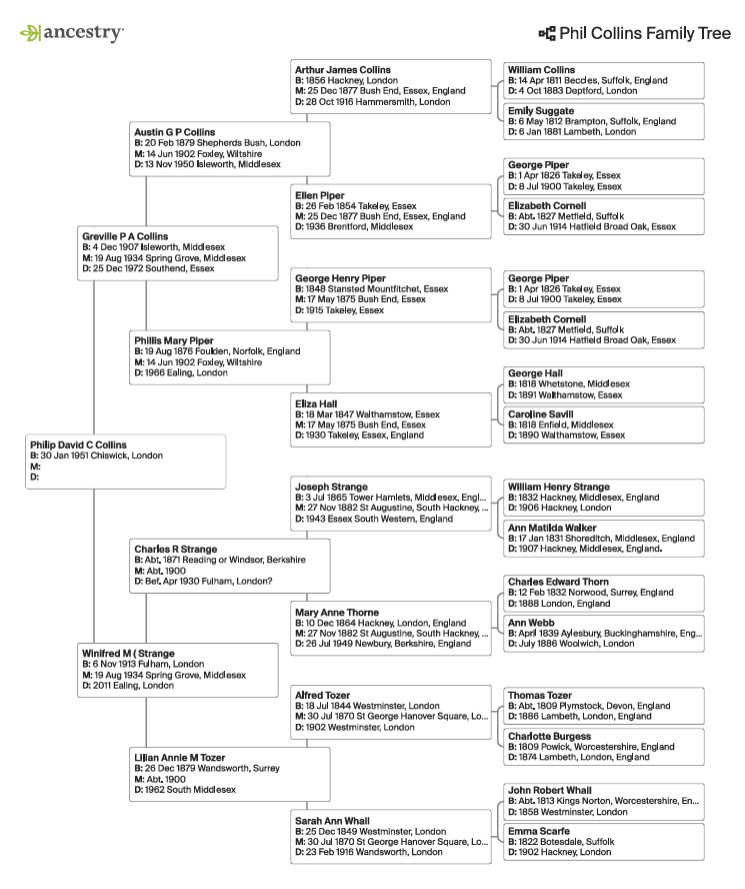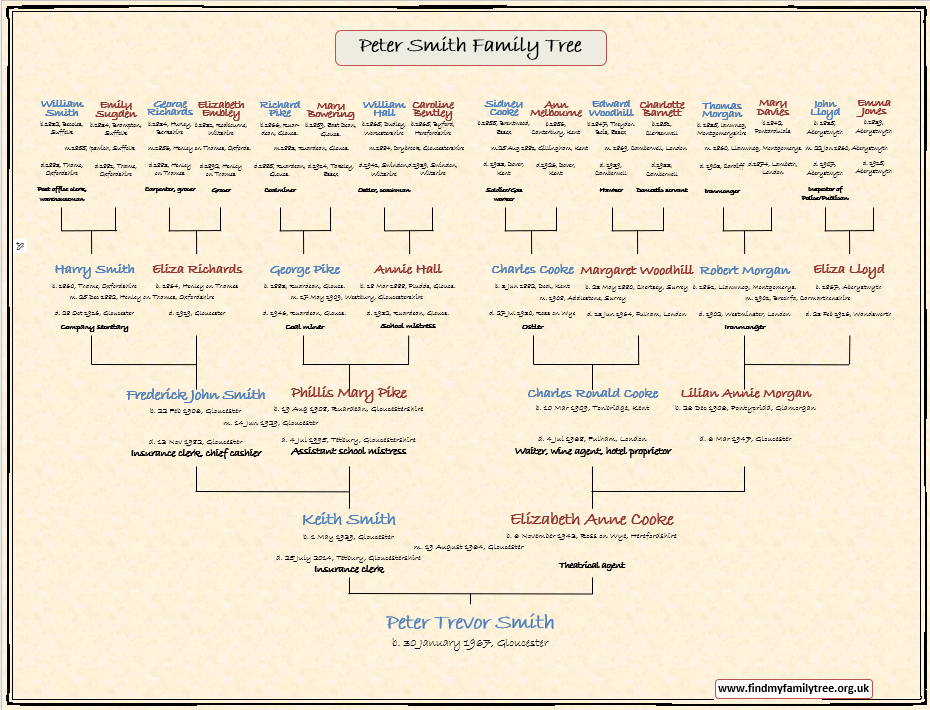We will start by asking you what you already know about your family. We will then carry out an initial search to establish the feasibility of working out your family tree. In almost all cases we quickly find that we can go back multiple generations for most, if not all, your ancestry lines. On the basis of what we have found we will ask if you want to proceed. If you do, we will then begin a thorough search of all available records on Ancestry and other websites, saving all the information and records to a family tree that we will create for you on the Ancestry website. We will look at civil and church records of births, baptisms, marriages, deaths and burials, recording the dates, locations and occupations of individuals or their parents. From there we will expand the search to include census records which give more details of addresses where people lived, their age, place of birth, marital status, family members, occupation and sometimes other details.

Finally we will look for any military records, immigration and travel records, electoral register entries, information from the Index of Wills, records of school, hospital and workhouse admissions, poor law records, newspaper articles, and possibly any criminal records, as well as photos posted by other users.
The best sources available on line – in terms of age, volume and detail – are undoubtedly those from Great Britain, but the records for other English-speaking countries are also good, particularly those from the USA, Canada, Australia, and New Zealand. Irish records from the 19th century and earlier are less comprehensive, but still an important source, especially because so many British-heritage individuals have Irish ancestors. Records from other European countries are increasingly being made available on-line, for example, from France, Germany, the Netherlands, Italy, Norway and Sweden.
We cross-check all of the details from different records to make sure we have found the correct individuals. The fact that someone has the right name and right age or even the right place of birth or correctly-named parents does not necessarily mean they are the individual we are looking for. Other family trees on-line can be a useful source of information for more recent ancestors (and sometimes have photos of your ancestors), but they have to be treated with great care because they can often be wrong. We do not rely on others’ research but carry out our own unique research for you.
It may sometimes be necessary to buy a copy of a document, especially a birth or marriage registration document, to verify the parents’ names and other details. Increasingly these documents are available to download immediately, for example from the General Register Office (GRO) website for England and Wales, or the Scotlands People website, and can be purchased for a small fee (£3.00 in the case of GRO records, £1.50 for Scottish records). As we progress, we will be in contact with you to keep you updated and check anything that needs your input.
What will you receive?
Using all the information we have found, we will identify as many of your direct ancestors as we are able, based on the written records, going back to at least your 16 great-great-grandparents, and usually many of your 32 great-great-great-grandparents. We will enter the information on a family tree we create for you on the Ancestry website. Records in the UK are extremely good going back to the late 1830s – the combination of civil, church and census records, supplemented by other records, provide a very powerful tool for research. This of course is subject to individuals having declared the (correct) parentage of their children. In more than a few cases birth records do not reveal the name of the father and the only sure way to research this is through a DNA test.
We will provide you with everything we have found. Firstly, for all of your direct ancestors that we have located, we will show their names, years of birth, marriage and death as well as the locations of those events. This will be in the form of a family tree produced in an electronic PDF file extracted from what we have created for you on the Ancestry website – see the example below.

Secondly, we will give you access to the detailed family tree we have created for you on the Ancestry website where you can view all the records we have found and that we have attached to the individuals in your family tree. It will also show any siblings for many of your ancestors from which it can be possible to identify more distant cousins. Ancestry gives free access to all records for a 14-day trial period, or you can choose to take out an Ancestry subscription if you want to research and grow your family tree further. But beware, it can be a bit addictive!
Thirdly, if you would like it, for a small additional fee we will enter the information we have found going back to your great-great grandparents in a bespoke A3 size document (11.7 x 16.5 inches or 29.7 x 42.0 centimetres) and print it off on high quality paper in a form that can be framed and displayed – see the example below.

Cost
After our initial search when we let you know whether it will be feasible to research your family tree, and if you decide you want to proceed, we charge a flat rate of £195 for one and a half days (12 hours) researching and recording everything. We require a 20% deposit (£39) before starting this work. We request the balance of £156 before sending you everything we have found. If it is necessary to verify any details by obtaining, for example, a birth or marriage registration document, we will always ask for your consent before doing so. Many birth records are available for as little as £3 for English/Welsh records (£1.50 for Scottish records), but we will only seek to obtain these if we consider it essential to verify some information. We charge an additional fee of £20 to create and print off a bespoke A3 size document as illustrated above that can be framed and displayed. We prefer payment by bank transfer but can also accept credit card payments.
